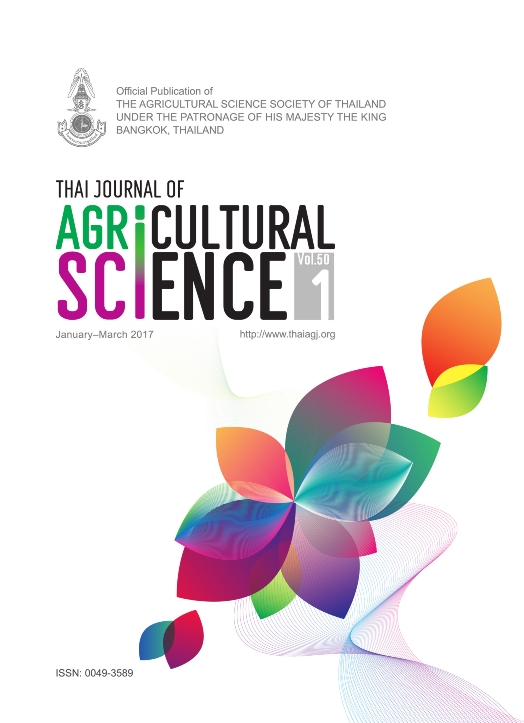Effects of Direct-fed Exogenous Fibrolytic Enzymes on Rumen Fermentation and Fibrolytic Bacteria Population in Ruminants Fed a Rice Straw-based Diet
Main Article Content
Abstract
The experiment investigated the effects of direct-fed exogenous fibrolytic enzymes (EFE) on feed efficiency and ruminal bacteria population in ruminants fed a rice straw-based diet. Nine rumenfistulated animals, three crossbred dairy cattle (>75% Holstein Friesian), three crossbred beef cattle (> 75% Brahman) and three swamp buffaloes, were arranged according to a cross-over design trial. The dietary treatments were a diet without EFE (control) and a diet with direct-fed EFE (500 mg/ kg DM). The results revealed that the administration of direct-fed EFE did not alter feed intake but slightly increased the digestibility of nutrients (P > 0.05). Ruminal fermentation as illustrated through pH, ammonia-nitrogen (NH3-N), molar proportion of volatile fatty acids and blood urea nitrogen (BUN), was not altered (P > 0.05) by the administration of direct-fed EFE. Among the fibrolytic bacteria, the population of Ruminococcus albus increased significantly as a results of the administration of directed EFE (P < 0.01). Among ruminant species, swamp buffalo showed better feed utilization and had more fibrolytic bacteria, particularly R. flavefaciens, than did beef cattle. Based on these results, we conclude that direct-fed EFE does not affect intake and rumen fermentation but does alter the number of fibrolytic bacteria in ruminants.


